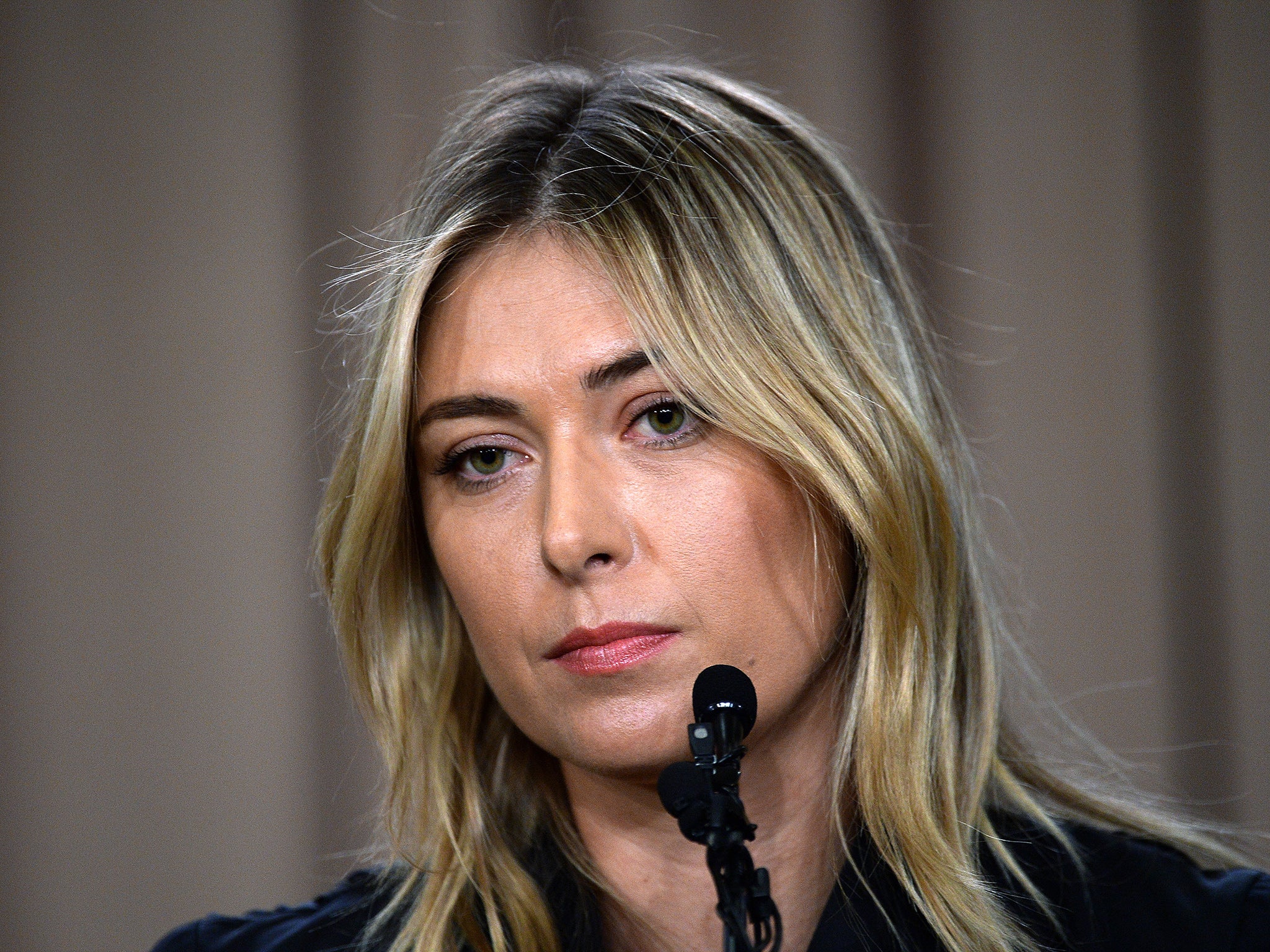Maria Sharapova: Russian tennis player to face anti-doping panel on Wednesday and could receive four-year ban
Sharapova tested positive for meldonium at the Australian Open in January, but anti-doping experts believe she will receive a reduced suspension of up to a year

Your support helps us to tell the story
From reproductive rights to climate change to Big Tech, The Independent is on the ground when the story is developing. Whether it's investigating the financials of Elon Musk's pro-Trump PAC or producing our latest documentary, 'The A Word', which shines a light on the American women fighting for reproductive rights, we know how important it is to parse out the facts from the messaging.
At such a critical moment in US history, we need reporters on the ground. Your donation allows us to keep sending journalists to speak to both sides of the story.
The Independent is trusted by Americans across the entire political spectrum. And unlike many other quality news outlets, we choose not to lock Americans out of our reporting and analysis with paywalls. We believe quality journalism should be available to everyone, paid for by those who can afford it.
Your support makes all the difference.Maria Sharapova faces an anti-doping panel today as she waits to discover if she will face a lengthy ban after testing positive in January.
The 29-year-old stunned the tennis world in March when she announced at a press conference that she had failed a test for meldonium on January 26, the day she lost an Australian Open quarter-final to Serena Williams.
The maximum punishment available is four years but most anti-doping experts think a more likely ban is between six to 12 months, which would start from the date of her provisional suspension on March 12, so even a ban at the lenient end of that range would see Sharapova miss the remaining grand slams this season, including Wimbledon, and the Rio Olympics.
Since Sharapova's announcement there has been much debate about meldonium, but the Russian is unlikely to benefit from the recent confusion surrounding the drug.
The Latvian-made heart disease medication had only been added to the World Anti-Doping Agency's banned list on January 1 but had been on a watch list for over a year and all national anti-doping agencies were told in October that it would be banned.
With use of meldonium widespread across eastern Europe, Sharapova's case was the most high-profile in an avalanche of positives in the first four months of the year. As of early May, Wada said there had been 288 positive samples.
But in April, the agency was forced to make an embarrassingly climbdown when it admitted there was a lack of scientific certainty on how long it takes for the drug to be completely excreted.
Early suggestions that it should be out of an athlete's system within days gave way to fears it could be present in long-term users, in trace amounts, for weeks, if not months.
This led Wada to issue new guidance, directing that samples collected before March 1 below a certain concentration of meldonium could be discarded, as the athlete might be able to prove they had stopped taking it in 2015.
Last month, Belarusian doubles specialist Sergey Betov, who also tested positive at the Australian Open, was cleared by the International Tennis Federation on these grounds.
This prompted some to speculate that five-time grand slam winner Sharapova could escape without punishment, which was always mistaken as both she and her lawyer John Haggerty had already admitted she had been taking it, on her doctor's advice, throughout January.
This was underlined by Russian sports minister Vitaly Mutko last month, when he told the Russian news agency TASS that the concentration of meldonium in Sharapova's system was above the provisional limit.

Sharapova, instead, must try to convince an International Tennis Federation panel that the "laundry list" of health reasons that Haggerty referred to in March should qualify her for a backdated therapeutic use exemption (TUE), or sick note.
Whether this will be enough to see the world's highest-earning female athlete avoid any ban at all is highly debatable, as all athletes sign up to the principle of strict liability and TUEs should be arranged, and independently verified, in advance.
PA
Join our commenting forum
Join thought-provoking conversations, follow other Independent readers and see their replies
Comments